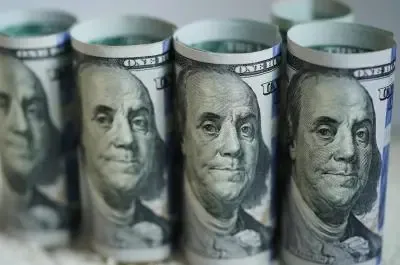What is the Current Status of India's Forex Reserves?

Synopsis
Key Takeaways
- India's forex reserves are currently at $699.96 billion.
- The gold reserves have risen to $98.77 billion.
- Forex reserves can fund over 11 months of imports.
- The RBI is easing regulations for exporters.
- The repatriation period for foreign currency accounts has been extended.
Mumbai, Oct 10 (NationPress) India's foreign exchange reserves have reached $699.96 billion as of the week ending Oct 3, according to data released by the RBI on Friday.
The foreign currency assets, a significant part of these reserves, were recorded at $577.71 billion during the said week. In dollar terms, these assets reflect the impact of currency fluctuations of non-US currencies such as the euro, pound, and yen.
Despite an overall decrease from $700.24 billion in the previous week, the gold segment of the forex reserves grew by over $3.75 billion, reaching $98.77 billion as of October 3.
Globally, central banks have been amassing considerable gold as a safe-haven asset amid the uncertainties of geopolitical tensions. The Reserve Bank of India (RBI) has nearly doubled its gold holdings since 2021.
Since 2024, the RBI has added approximately 75 tonnes to its gold reserves, totaling 880 tonnes—which now represents around 14 percent of India's total forex reserves, as per a report by Morgan Stanley.
The special drawing rights component of the forex reserves is at $18.81 billion, marking a $25 million increase from the previous week.
An increase in the country's forex reserves provides the RBI with greater flexibility to support the rupee against the US dollar. Sufficient reserves empower the RBI to intervene in currency markets, releasing more dollars to stabilize the rupee and mitigate volatility.
RBI Governor Sanjay Malhotra recently stated that India's forex reserves can cover more than 11 months of goods imports and approximately 96 percent of outstanding external debt.
In response to growing uncertainties in global trade, the RBI has chosen to relax forex management regulations, simplifying payment processes for exporters, including an extension in the repatriation timeline for forex earnings.
The RBI has extended the repatriation period from one month to three months for foreign currency accounts held in the IFSC in India, encouraging Indian exporters to establish accounts with IFSC Banking Units and enhancing forex liquidity. These regulatory updates will be announced soon, according to an official statement.
In January 2025, the RBI permitted Indian exporters to open foreign currency accounts with banks outside India for receiving export proceeds. Funds in these accounts can be utilized for import payments or must be repatriated by the end of the following month post-receipt.










